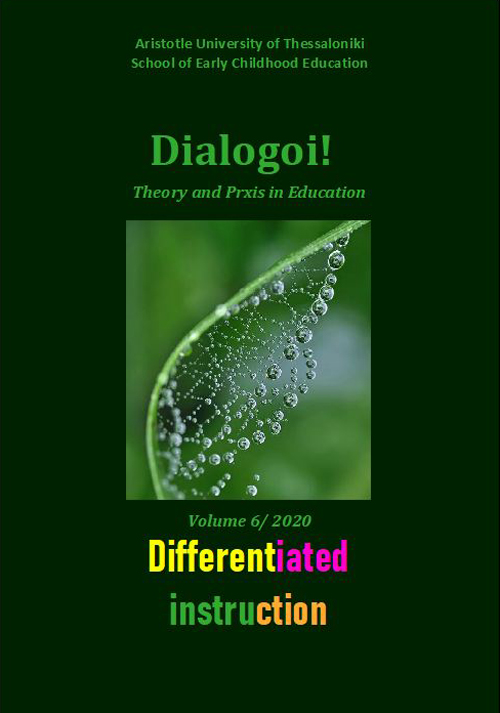Rethinking the differentiated instruction in kindergarten

Abstract
The acceptance of essential idea that every child is unique means that there are various differences at the cognitive and social levels among children. Since, these characteristics of children impact the way they learn, teachers are challenged to respond effectively to everyone’s learning needs. Differentiated Instruction (DI) is considered as an innovative approach for teaching and learning, as it builds upon children’s diversity, in order to maximize their learning. Although the effectiveness of differentiated approach has been indicated by several empirical studies, there is a significant gap of studies that concentrate on preschool education, while scarce empirical evidence exists regarding its effectiveness in the context of an Integrated Curriculum. Therefore, the present paper discusses the criticism that DI has received (e.g. learning profile/style, interpretation of interests), which leads inevitably to the modernization and the revision of the DI’s framework, in order to increase its applicability in preschool education. The proposed framework combines the DI with the Integrated Curriculum context, places learning styles in a secondary, complementary role, updates the approach of interpretation of interests according to related cutting-edge research. Last but not least, the present paper provides several points of educational implications and stresses the need for further examination and application of this framework will shed light onto its effectiveness and its applicability.
Article Details
- How to Cite
-
Μαβίδου Α. (2020). Rethinking the differentiated instruction in kindergarten. Dialogoi! Theory and Praxis in Education, 6, 143–158. https://doi.org/10.12681/dial.23528
- Issue
- Vol. 6 (2020)
- Section
- Special Theme

This work is licensed under a Creative Commons Attribution-NonCommercial-ShareAlike 4.0 International License.
Authors who publish with this journal agree to the following terms:
- Authors retain copyright and grant the journal right of first publication with the work simultaneously licensed under a Creative Commons Attribution Non-Commercial License that allows others to share the work with an acknowledgement of the work's authorship and initial publication in this journal.
- Authors are able to enter into separate, additional contractual arrangements for the non-exclusive distribution of the journal's published version of the work (e.g. post it to an institutional repository or publish it in a book), with an acknowledgement of its initial publication in this journal.
- Authors are permitted and encouraged to post their work online (preferably in institutional repositories or on their website) prior to and during the submission process, as it can lead to productive exchanges, as well as earlier and greater citation of published work (See The Effect of Open Access).


